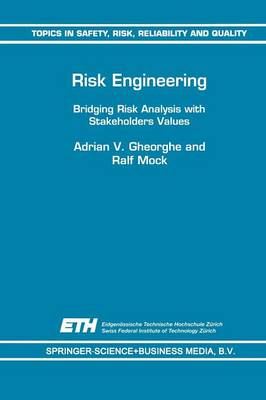Topics in Safety, Risk, Reliability and Quality
3 primary works
Book 5
Quantitative Risk Assessment of Hazardous Materials Transport Systems
by M. Nicolet-Monnier and A.V. Gheorghe
Book 6
Book 9
Critical Infrastructures at Risk
by A.V. Gheorghe, M. Masera, M. Weijnen, and L.J. De Vries
Europe witnessed in the last years a number of significant power contingencies. Some of them revealed the potentiality of vast impact on the welfare of society and triggered pressing questions on the reliability of electric power systems. Society has incorporated electricity as an inherent component, indispensable for achieving the expected level of quality of life. Therefore, any impingement on the continuity of the electricity service would be able to distress society as a whole, affecting individuals, social and economic activities, other infrastructures and essential government functions. It would be possible to hypothesize that in extreme situations this could even upset national security.
This book explores the potential risks and vulnerabilities of the European electricity infrastructure, other infrastructures and our society as whole increasingly depend on. The work was initiated by the need to verify the potential effects of the ongoing market and technical transformation of the infrastructure, which is fundamentally changing its operation and performance. The final aim is to set the basis for an appropriate industrial and political European-wide response to the risk challenges.


